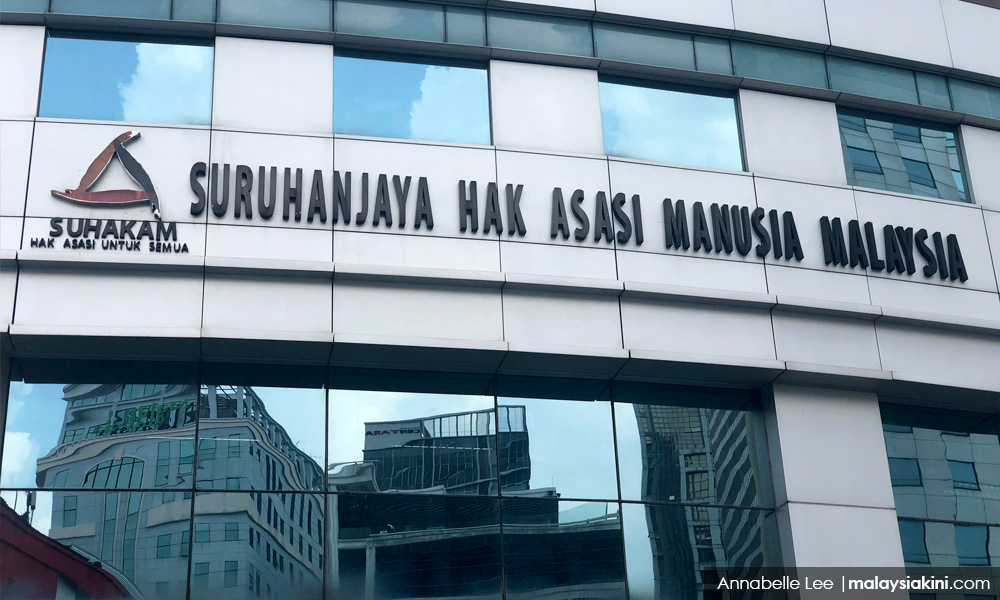The Coalition of Malaysian Non-Governmental Organisations (Comango) has criticised the government over its recent appointments to human rights group Suhakam.
In a statement today, Comango raised its concerns over the “selection, appointment process and lack of equal representation of the new commissioners” by the government, which they claimed falls short of international standards.
They reminded that Suhakam, as a national human rights institution (NHRI), must comply with the Paris Principles - which identify their human rights objectives and provide for matters such as inclusive and transparent selection and appointment process.
“However, the government today appears to have regressed on its international commitment to strengthen the mandate and functions of Suhakam.
“This is evident in the non-transparent selection of the new members of the commission.
"Several individuals appointed by the government to be members of the commission appear to have questionable track records and limited knowledge of human rights issues.
“This does not fit well with the crucial role of NHRIs to promote and monitor the effective implementation of international human rights standards at the national level,” said Comango.
The group noted that newly minted Suhakam chairperson Rahmat Mohamad (above) had co-authored a paper that objected to Malaysia’s ratification of the Rome Statute.
“He also reportedly stated that he would ensure that human rights in the country would be based on the Malaysian mould, taking into consideration the importance of religion, culture and traditions.
“This statement contradicts the principle of universality, which is the cornerstone of international human rights law by virtue of which everyone is equally entitled to human rights.
“Appointing an individual with a track record that is against effective implementation of international human rights standards at the national level to helm Suhakam raises concerns about Suhakam’s legitimacy and credibility for promoting international human rights standards at the national level,” said the coalition.
Rahmat is a professor of law at UiTM. He was one of four academics who authored a document for the Conference of Rulers in April 2019, advising against Malaysia ratifying the Rome Statute.
The treaty - otherwise known as the Rome Statute of the International Criminal Court - has been ratified by 123 states.
This treaty created the International Criminal Court (ICC) which focuses on genocide, crimes against humanity, war crimes, and the crime of aggression.
The ICC can only investigate and prosecute such crimes in situations where states are unable or unwilling to do so themselves.
The paper co-authored by Rahmat argued that ratifying the Rome State would expose the Yang di-Pertuan Agong, as the head of the military, to the jurisdiction of the ICC.
The authors also argued that since some of the most populous countries in the world - Iran, the United States, Russia, China, India, and Indonesia - have refused to ratify the ICC, the spirit of the Rome Statute would be lost.
Separately, Rahmat had, in 2018, written an open letter stating that Malaysia should legislate international human rights instruments into domestic law first before ratifying international human rights laws.
Prime Minister Ismail Sabri Yaakob described the new commission as “inclusive” and added that their term was effective June 22.

Impartiality and independence
Comango also suggested that the appointment of active politicians such Hasnal Rezua Merican and Nazira Abdul Rahim raised questions about the human rights body’s impartiality and independence.
“It is of further concern that the appointments continue to be non-inclusive and do not reflect the equal representation of women, persons with disabilities, and indigenous peoples, amongst others.
“In particular, as a signatory of the Convention on the Elimination of All Forms of Discrimination Against Women (Cedaw), the government must adhere to the statement issued by the Cedaw Committee (2008) calling for gender balance in the composition of the commission,” the group said.
Further, they added that the efforts of previous governments to safeguard Suhakam’s “A-status” should not be jeopardised by an alleged non-transparent selection and appointment process of the members of the commission.
“Additionally, individuals who do not have a record of demonstrated commitment to protect and promote universal human rights should not be given the mandate to lead the very institution that champions human rights for all,” said Comango.
In response to the issue, the civil society coalition demanded an explanation from the government regarding its compliance with due processes in the appointment of the new Suhakam commissioners.
“The government must be transparent and disclose the complete list of applications received, shortlisted candidates, and how it reached its final list of candidates. It must provide an explanation to the people of Malaysia.
“Do not tarnish the excellent work of Suhakam’s predecessors and sacrifice human rights for the sake of political mileage,” it said. - Mkini



No comments:
Post a Comment
Note: Only a member of this blog may post a comment.